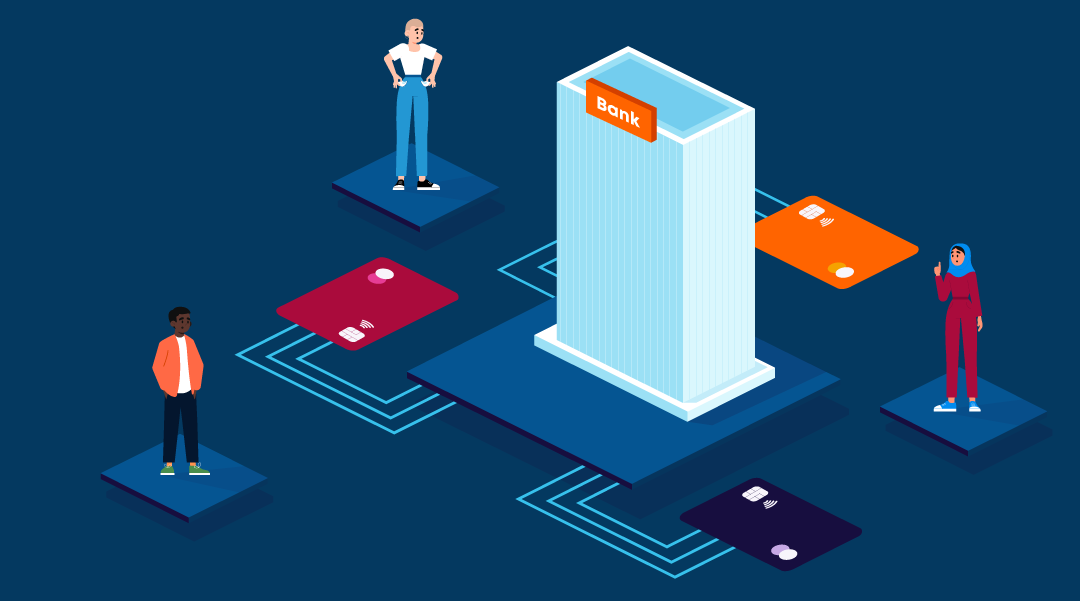Many people rarely give their bank account a second thought. If your parents opened a bank account for you when you were a child, you probably just take it for granted.
But, what if you don’t have one, or you want one but can’t open one? You need a bank account to do pretty much anything these days. Without one, you can’t participate fully in the financial system.
The problem: Financial exclusion
Why wouldn’t someone be able to open a bank account?
You may not have documents to prove your identity, like utility bills, a driver’s license, or a birth certificate. You may not have a fixed address or there may be a language barrier. If you don’t know how it all works you can feel lost and unsure of how to get started?
It’s about more than just having a bank account. Basic financial services make all the difference to managing your money or accessing affordable credit. If you’re in debt, you might need a financial adviser to help. If you’re struggling with your taxes, you might need help from an accountant.
If you don’t have access to common financial services, you can miss out on opportunities, such as employment, savings, making your money work for you, and building your self-reliance. When you struggle to manage your money, it can have a huge negative impact on your physical and mental wellbeing.
The solution: Financial inclusion
Financial inclusion is about solving these problems by providing access to the financial services people need, regardless of their wealth or circumstances.
When financial services are accessible, more people can build financial well-being, and everyone benefits. People with stronger self-reliance can help others, and people with a solid financial footing are better prepared for financial shocks that lie ahead. When individuals are stronger financially, the economy is stronger, too.
In the wake of the Covid-19 pandemic, as of September 2020, Step Change reported that 2.6 million people are at risk of a financial crisis, and 5.6 million are struggling to afford essentials. It’s likely those numbers will rise, making financial inclusion increasingly important. When more people need financial services, it’s vital to make sure everyone has access.

Financial inclusion and financial resilience
Being prepared for future financial shocks might involve building up your savings, contributing to your pension, taking out insurance or affordable credit, and more but it’s not something you can do on your own.
We all need access to financial services that suit our circumstances, as well as an adequate social safety net. That means the Government needs to take active steps to address these issues.
The Financial Inclusion Commission (FIC) is an independent group of people with a range of financial experience from academia, business, charity, and UK Parliament. As part of its mission to champion financial inclusion and challenge financial exclusion wherever it occurs, the Commission has called on the Government to act.
There’s also the need for financial education and more willingness to talk openly about money. 9 out of 10 UK adults say they’re not comfortable talking about money. It’s no wonder, then, that 47% of UK adults don’t feel confident making decisions about financial products and services. If we aren’t comfortable talking about money, how can we be confident in managing it?
The more we build our financial education, and make conversations about money commonplace, the better prepared we’ll be to navigate the economic ups and downs that lie ahead.
Financial inclusion, alongside financial education, is essential for improving our financial, emotional, and mental wellbeing, and preparing for the future, whatever that might be.
Get started on your financial education journey at Blackbullion.
Further reading:
- Top 10 Money Tips – Read on to discover how you can break bad spending habits and create new good money habits. How to manage money effectively, know where your money is going, create a budget, and pay yourself first.
- The Budget Decision Tree – A step-by-step decision tree to help to examine your income and expenses and put a plan in place to balance them – or ideally have more income than expenses!
Sources
- Financial Inclusion, World Bank, https://www.worldbank.org/en/topic/financialinclusion
- Financial Inclusion Definition, Investopedia, https://www.investopedia.com/terms/f/financial-inclusion.asp
- What is financial inclusion and why does it matter?, The Big Issue, https://www.bigissue.com/latest/finance/what-is-financial-inclusion-and-why-does-it-matter/

